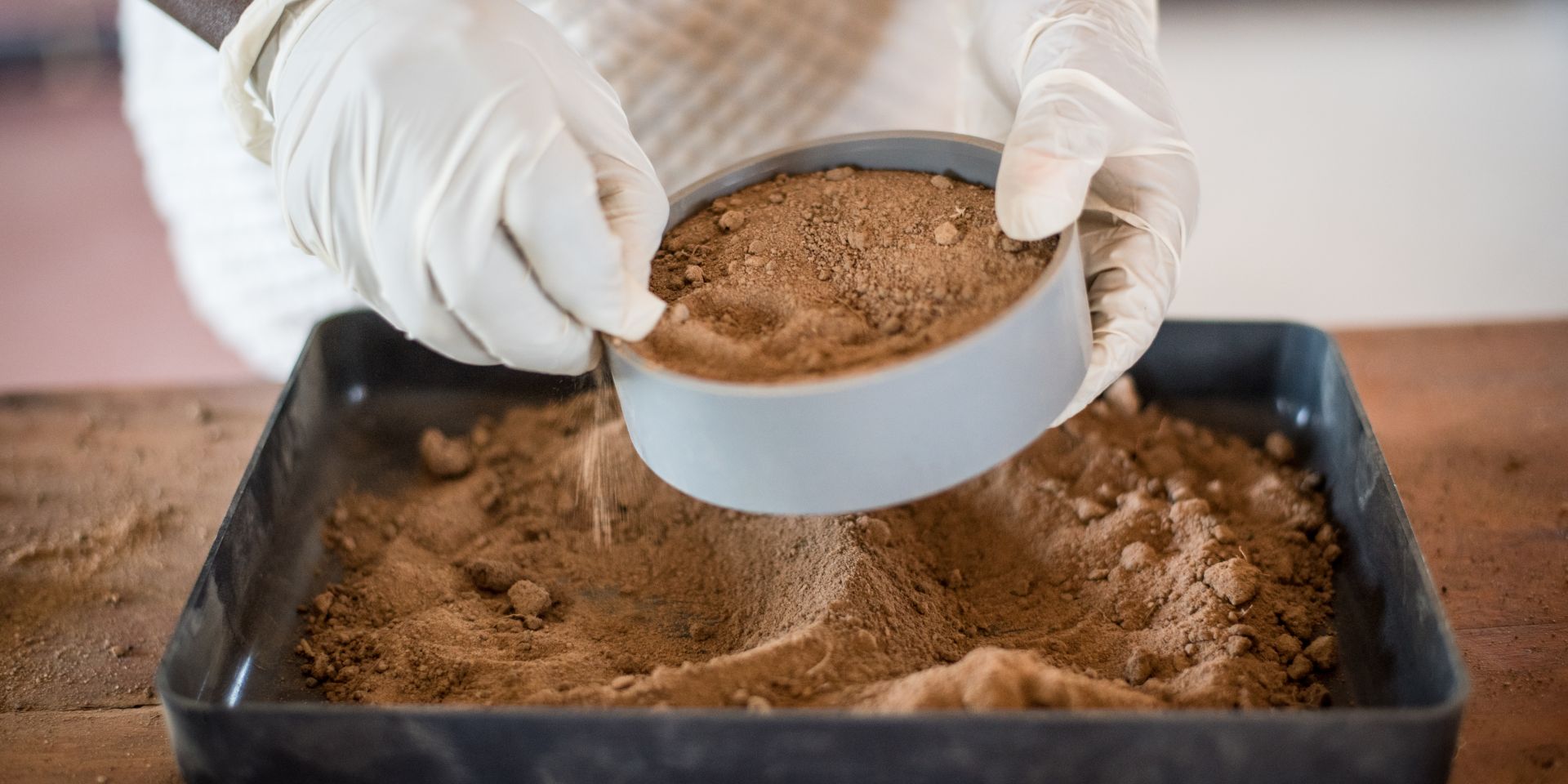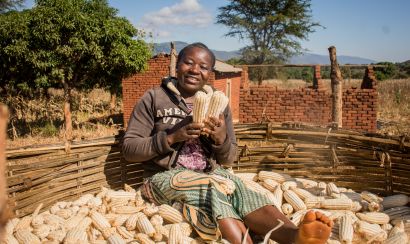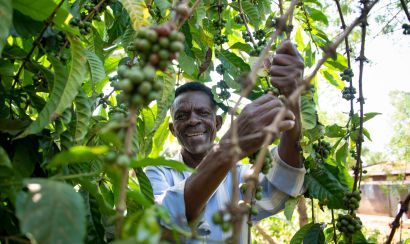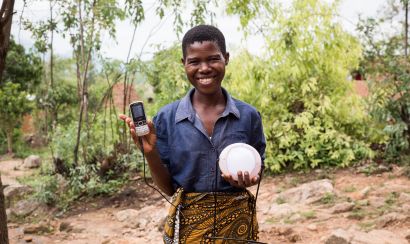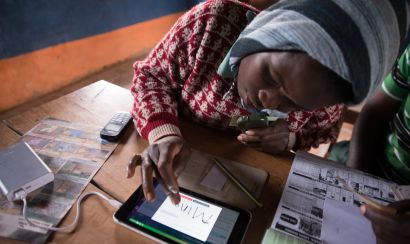Why healthy soils are critical to building smallholders’ climate resilience
Healthy soils provide the best conditions for healthy crops. Healthy soils store and supply nutrients to support and sustain plant growth, are essential to water purification and carbon sequestration and are home to a large variety of organisms, microorganisms, bacteria, fungi, and insects.
Maintaining and improving soil health is, therefore, essential to ensuring farmers can stay resilient in the face of increasing pressures on land and a changing climate. Healthy soils produce better harvests, meaning farmers can harvest more even on small areas of land, and healthy soils mean healthier crops that are more resilient to extreme weather events. In addition, ensuring soils are healthy is essential to climate change mitigation: healthy soils do a much better job of maintaining, or actually increasing, their carbon content—the less healthy the soil, the more carbon is released into the atmosphere.
Pressures on soils are increasing
Most smallholder farmers across Sub-Saharan Africa farm on small pieces of land that have been divided and subdivided over the years as families grow. The intensity of farming on these small pieces of land has increased to meet the needs of growing populations and changing diets. This has led to land – and soil – degradation, with available estimates showing that land degradation affects over 46% of Africa’s land area, impacting at least 485 million people.
Healthy soils absorb and store atmospheric carbon in plants; they also absorb and store water, making crops more resilient during less-than-ideal weather conditions. When soils lose their health, farms become more vulnerable to the impact of flooding and drought. In the long run, it means farmers have to expand the amount of land they farm on and increase their resource consumption – water, fertilizer, and pesticides – just to keep harvesting at the same level. This results in more environmental damage, and bigger greenhouse gas emissions.
Together these things have impacted farmers’ ability to harvest as much as they once did, making soil health one of the most important challenges for agricultural productivity, climate resiliency, and food security across Sub-Saharan Africa.
Incentivizing soil management for healthier soils
In response to this challenge, One Acre Fund has been collaborating with the government to introduce soil health testing for smallholder farmers in Tanzania. The testing examines various soil components, including nutrient levels, carbon content, and soil acidity. Following the testing, farmers get advice on the health of their soil and are given a set of tailored actions specific to their farm, including the crop mix they need to grow to help restore the health of their soil.
“When my field officer informed me that having my soil tested would help me harvest more, I decided to participate. I am here to know if I am using the right fertilizer for my soil type or planting crops for which my soil is best suited,” said Karista Kilasi, a farmer who participated in the program’s initial rollout.
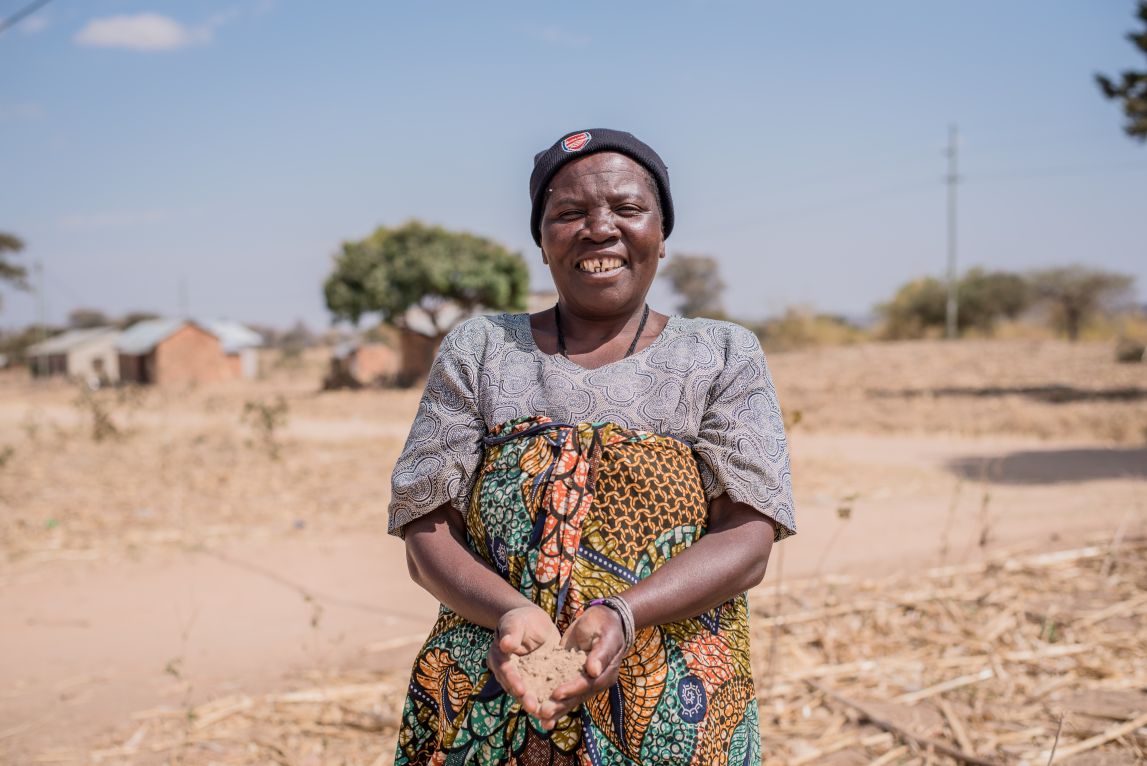
Soil health recommendations also center around fertilizer and lime usage, composting, intercropping, and tailoring crop recommendations to specific soil types. This is a crucial step in helping farmers achieve optimal harvests both in the short and long term.
Huruma Mbafu decided to enroll for testing to understand the specific fertilizer type she needs to use.
“That way, I would also know the specific amount I needed each season to help me reduce the type and amount of fertilizer I needed to buy and help me earn more from my work,” she says.
Smallholders are active soil stewards
Through soil testing, we aim to equip farmers with adequate knowledge of their soils to help them maximize their harvests. But it goes further than this: farmers are key stewards of the land and play an essential role in maintaining healthy ecosystems. By equipping them with tailored knowledge and tools for improving soil health, they can also reduce – and reverse – the negative environmental impacts farming can have. With the knowledge about the proper fertilizer ratios to apply, the right quantities of compost and manure, and how best to use agricultural lime to adjust acidity, farmers can become active protectors of the soils they depend on.
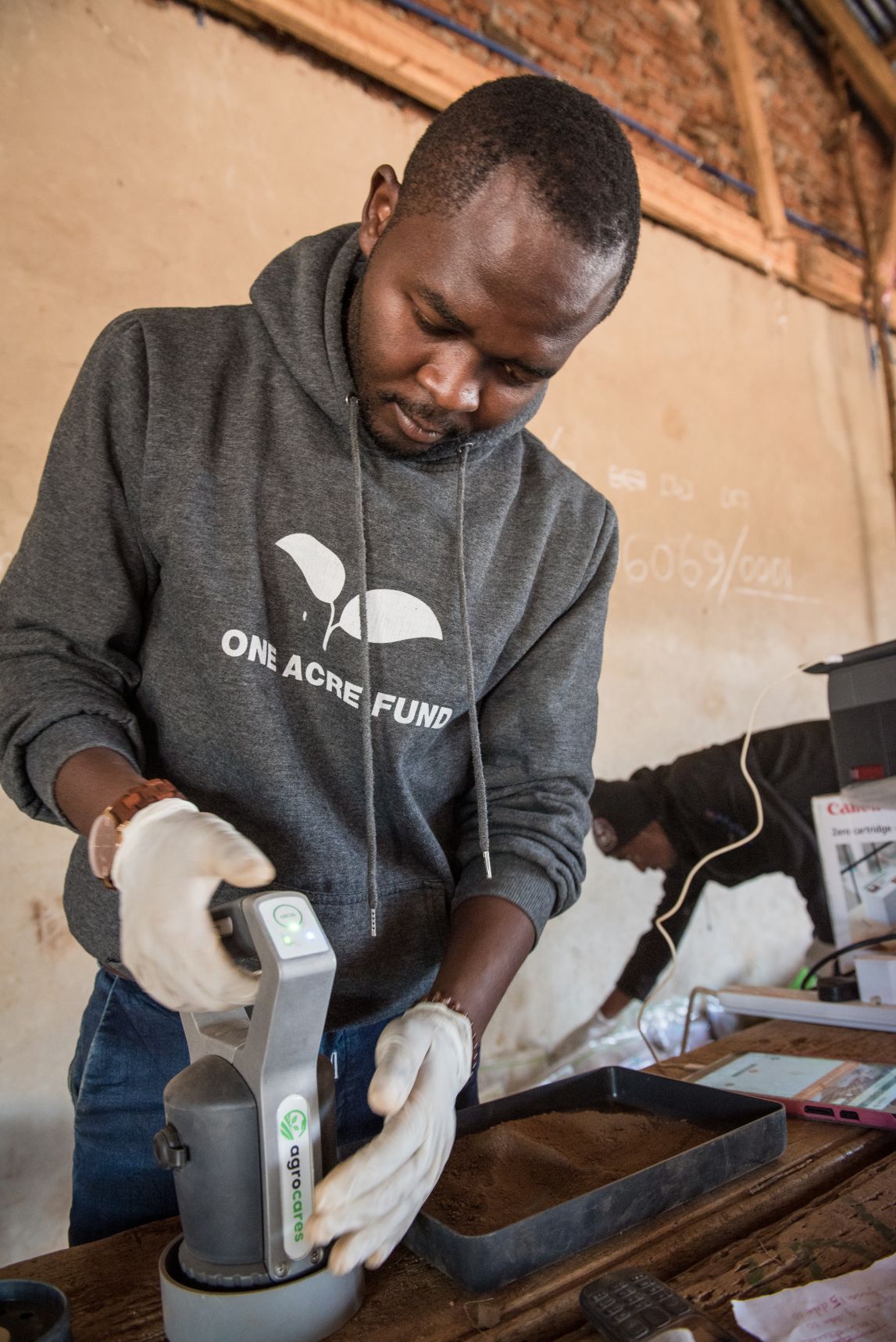
Across 2023, we plan to ensure all farmers across the southern districts of our Tanzania program have access to soil testing. Clemence Mdamu says he is happy with the soil health knowledge he has gained so far because it means he won’t have to guess how to plant productively again.
“I learned that every soil supports specific crop types but also needs specific nutrients. I hope that One Acre Fund can continue to provide soil testing to more farmers.”
Soil is intimately linked to smallholder livelihoods, their climate resilience, and climate change mitigation. That’s why it’s absolutely critical that we make the regeneration and maintenance of soil health a central part of our services. In the short-term, our goal is to explore how to scale up opportunities for smallholders to access soil testing, through initiatives like the one between One Acre Fund and the Government of Tanzania, across all our countries of operation.
